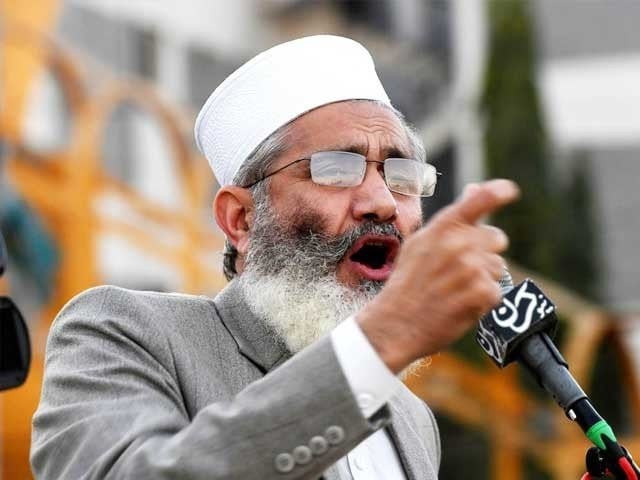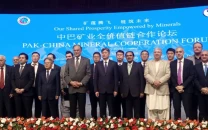JI to rally outside K-P Governor House today
Party to stage sit-in against inflation, hike in fuel prices

Jamaat-e-Islami (JI) chief Sirajul Haq has declared his party's intention to stage a sit-in outside the Khyber-Pakhtunkhwa Governor House in Peshawar as a protest against the surging inflation and the rising prices of petroleum products.
Addressing the Ulema Convention, organized by the Jamiat Ittehad Ulema, Siraj emphasized that the JI's demonstrations would persist until inflation was curbed, and he hinted at an upcoming wheel-jam strike.
During this gathering, prominent figures such as JI district chief Aizaz-ul-Mulk Afkari, Jamiat Ittehad Ulema K-P President Maulana Asadullah Khan, and Mufti Imtiaz Marwat were also in attendance.
Siraj disclosed the JI's plans for the second phase of their protest movement, which will target expensive electricity and the excessive hike in fuel prices. They intend to stage sit-ins in Lahore on September 21, Quetta on September 24, and outside the Sindh Governor House in Karachi on October 6, all with the aim of pressuring the government to provide relief to the people.
Siraj placed blame on both the Pakistan Democratic Movement (PDM) and PTI governments for the escalating prices. He particularly criticized JUI-F chief Maulana Fazlur Rehman, the president of PDM, for not addressing the issue of inflation despite his alliance being in power.
Read JI announces sit-in against inflated power bills from 18th
The JI leader highlighted how inflation had stripped people of their basic necessities, including shelter, clothing, and food. He asserted that the PTI, PDM, PPP, and caretaker government were aligned in "serving" the interests of the International Monetary Fund (IMF).
He stressed that his party was essential for sustainable development in Pakistan, as the incompetence of other political parties had become evident. He urged citizens not to remain silent, emphasizing that silence would equate to surrendering their rights.
Siraj expressed gratitude to the people for the successful nationwide shutter-down strike on September 2 and questioned the soaring prices of essential commodities, attributing them to the influence of the IMF on successive governments.
He asserted that regardless of which government came to power, they were all agents of the IMF, and the country needed a change in direction.
He proposed that Pakistan could generate more than 3.3 million megawatts of electricity through solar systems and harness cheaper options like hydroelectricity in K-P, wind, and atomic power to provide electricity to the people at an affordable rate.



















COMMENTS
Comments are moderated and generally will be posted if they are on-topic and not abusive.
For more information, please see our Comments FAQ